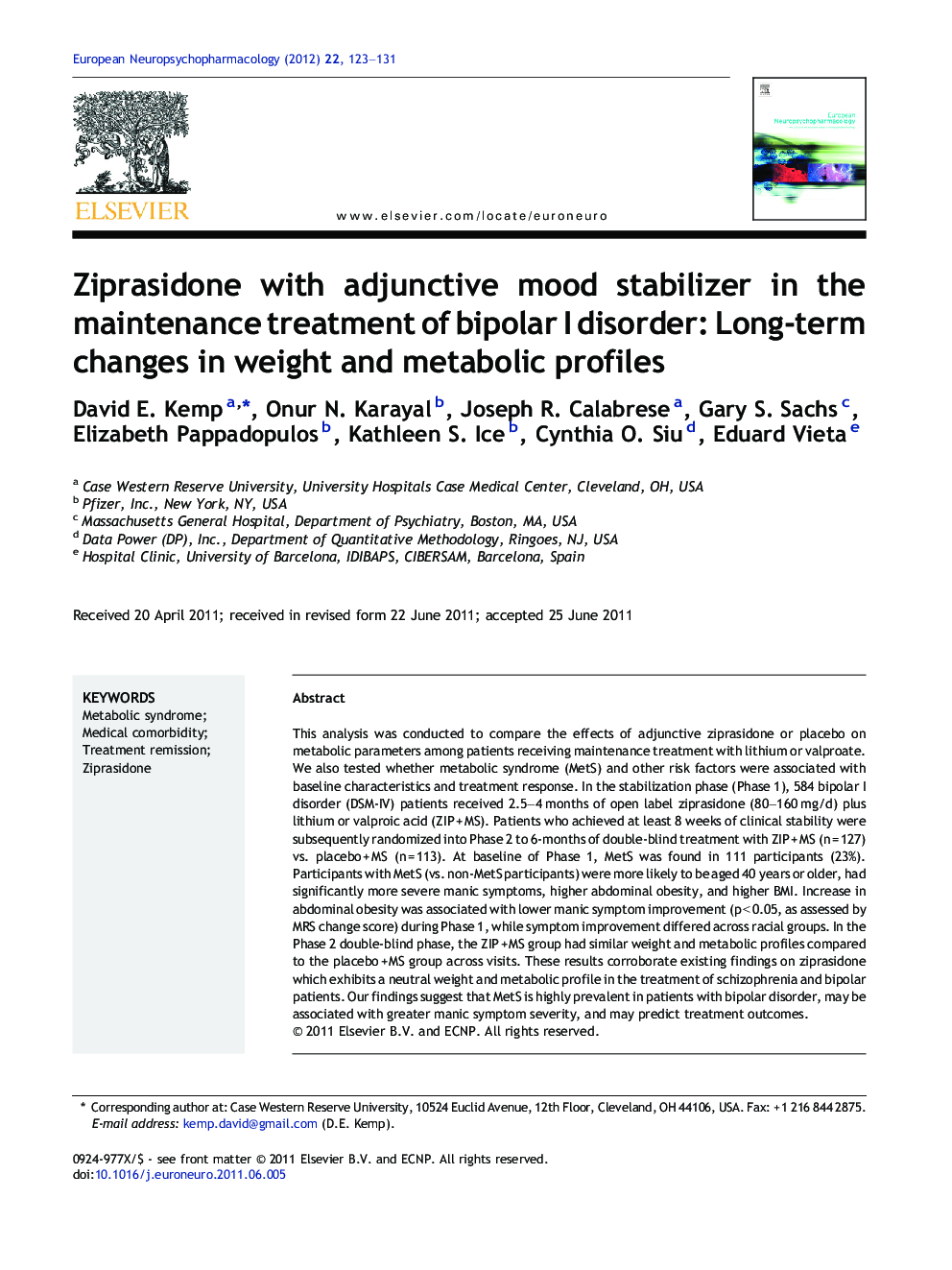| Article ID | Journal | Published Year | Pages | File Type |
|---|---|---|---|---|
| 319678 | European Neuropsychopharmacology | 2012 | 9 Pages |
This analysis was conducted to compare the effects of adjunctive ziprasidone or placebo on metabolic parameters among patients receiving maintenance treatment with lithium or valproate. We also tested whether metabolic syndrome (MetS) and other risk factors were associated with baseline characteristics and treatment response. In the stabilization phase (Phase 1), 584 bipolar I disorder (DSM-IV) patients received 2.5–4 months of open label ziprasidone (80–160 mg/d) plus lithium or valproic acid (ZIP + MS). Patients who achieved at least 8 weeks of clinical stability were subsequently randomized into Phase 2 to 6-months of double-blind treatment with ZIP + MS (n = 127) vs. placebo + MS (n = 113).At baseline of Phase 1, MetS was found in 111 participants (23%). Participants with MetS (vs. non-MetS participants) were more likely to be aged 40 years or older, had significantly more severe manic symptoms, higher abdominal obesity, and higher BMI. Increase in abdominal obesity was associated with lower manic symptom improvement (p < 0.05, as assessed by MRS change score) during Phase 1, while symptom improvement differed across racial groups. In the Phase 2 double-blind phase, the ZIP + MS group had similar weight and metabolic profiles compared to the placebo + MS group across visits.These results corroborate existing findings on ziprasidone which exhibits a neutral weight and metabolic profile in the treatment of schizophrenia and bipolar patients. Our findings suggest that MetS is highly prevalent in patients with bipolar disorder, may be associated with greater manic symptom severity, and may predict treatment outcomes.
